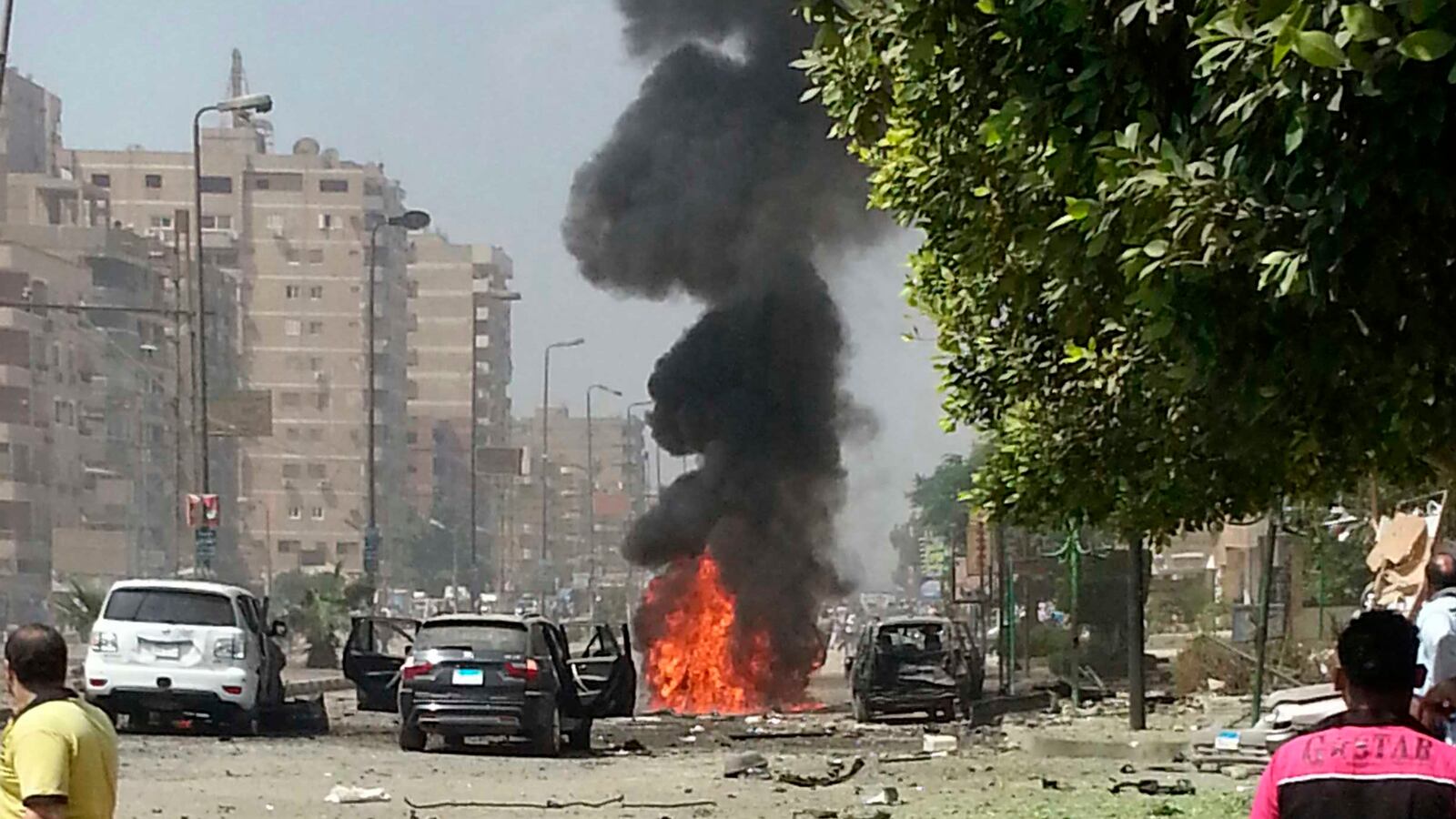A sign reading “It’s a girl!” hung in an apartment destroyed by the car bomb meant to kill Interior Minister Mohamed Ibrahim. The floor beneath, strewn with broken glass, was stained with blood. Next door, a family sat amid debris, discussing what to do next. “First, we have to pick up all the glass,” Marwa Hassem said, looking at two scared little girls wearing matching floral shirts. “We won’t leave. We have to be strong.”

The violent assassination attempt in the residential area of Cairo’s Nasr City came as a shock to many Egyptians, even though the country has been rocked by a staggering death toll and nonstop political chaos. There is a palpable fear of Egypt returning to the targeted violence of the 1980s and 1990s, when Islamic insurgents killed authorities and political figures, as well as tourists and Christians.
Several fingers and a charred arm were found at the scene, signaling a possible suicide bombing, and at least 21 people were injured in the attack, including police officers and one child. But criminal investigators are still unsure whether a suicide bomber targeted the interior minister or if the blast came from a car detonated by a remote-control device from afar. Several versions of the story have circulated among bystanders, officials, and media.
Interior Minister Mohamed Ibrahim, who emerged unharmed from the attack, has been a prominent and controversial fixture in Egyptian politics. A high-ranking official under Hosni Mubarak, he was later appointed interior minister by former president Mohamed Morsi, but stayed in his post, heading the police force, throughout the military-led takeover. He played a crucial role in spearheading the operation to disperse the mass Islamist sit-in on August 14 at the Rabaa al-Adaweyah mosque, resulting in the deaths of hundreds of pro-Morsi supporters.
While many bystanders seemed to be in a state of shock, many were not entirely surprised by the attack, with one even referring to the bombing as “normal.”
“Every action has a reaction,” said a driver whose car was destroyed in the blast, referring to the recent political upheaval, “but this is not our Islam.” He declined to give his name for security reasons.
In a televised address, the interior minister heralded the assassination attempt as “not the end but the beginning” of a new terrorism campaign that would be quelled by authorities. He also warned that the perpetrators of the bombing may have been foreign, an accusation that could possibly inflame already high levels of xenophobia in Egypt.
The bombing comes just two months after Morsi’s overthrow, which triggered a wave of outrage among his followers. The government has accused the Muslim Brotherhood and its supporters of encouraging and carrying out acts of terrorism. Last week Morsi was referred to trial on charges of inciting murder of protesters outside the presidential palace in December 2012. Scores of his supporters still remain in custody, and media channels perceived as supporting the Muslim Brotherhood have been shut down and journalists deported.
“The political disagreement with the Muslim Brotherhood cannot turn into committing violence,” Amr Darrag, one of the only Muslim Brotherhood leaders still free, told the Egyptian news site Al-Ahram. He, as well as other Egyptian Islamist groups, denied any connection to the bombing.
Gen. Abdel Fattah al-Sisi, viewed by many Egyptians as a national hero, vowed to “eliminate all criminal hotbeds and to deal strictly and decisively with the terrorist elements,” a possible signal of an even more heavy-handed crackdown on those opposing the interim government. Egyptian forces have also launched a series of coordinated operations in Sinai in an attempt to quash rising insurgency.
“I’m worried this is the start of something big,” said Ahlam, a young mother who fell to the ground when the bomb detonated, dropping her baby on the pavement. “Only God knows who did this,” she said, clutching the tiny infant tighter to her hip, looking out at the destruction.
As the interior minister’s car was towed away, a woman shrieked in front of television cameras. “They can’t do this to us!” she said between sobs. “I want the Muslim Brotherhood to leave. They aren’t Egyptian! They shouldn’t be allowed to even drink our water.”






